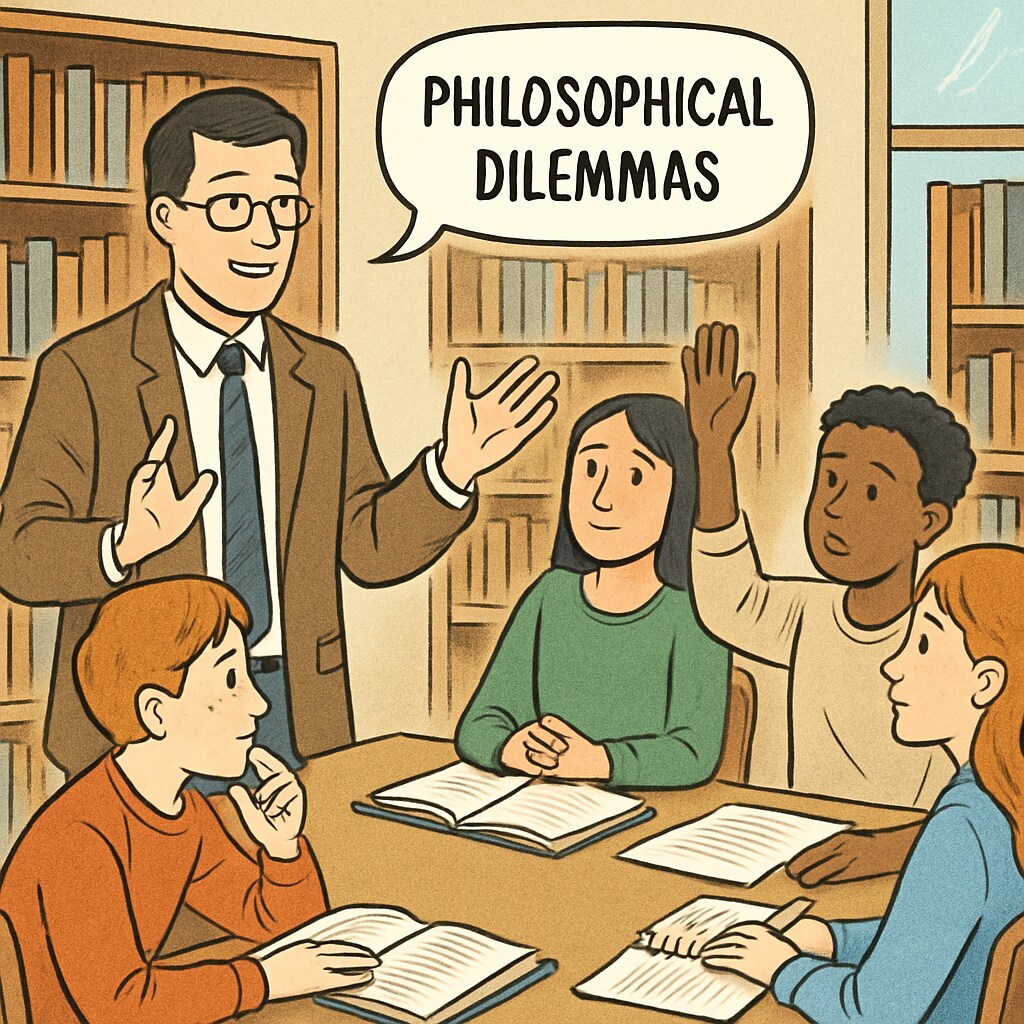In today’s rapidly evolving world, introducing psychology and philosophy in K12 education can empower young minds with critical thinking skills and self-awareness. These subjects provide valuable tools for understanding human behavior and exploring profound questions about existence, ethics, and decision-making. This article shares curated self-learning resources, tailored methods, and practical tips for students and educators to explore psychology and philosophy effectively.

Why Psychology and Philosophy Matter in Early Education
Psychology and philosophy are often overlooked in traditional K12 curricula, yet they play a crucial role in shaping a student’s intellectual and emotional development. Psychology helps students understand themselves and others, fostering emotional intelligence and interpersonal skills. Meanwhile, philosophy encourages critical thinking by teaching students to analyze arguments, question assumptions, and consider diverse perspectives.
For example, introducing psychology concepts such as emotional regulation or cognitive biases can help students navigate challenges during adolescence. Similarly, exploring philosophical questions like “What is the meaning of life?” or “What makes actions morally right?” can spark curiosity and intellectual growth.
Age-Appropriate Resources for Self-Learning
Choosing the right resources is essential when introducing psychology and philosophy to K12 students. Below is a breakdown of age-appropriate tools and methods:
- Elementary School (Ages 6–10): Use engaging picture books and simple stories to explain basic psychological concepts like emotions, empathy, and teamwork. Philosophy can be introduced through thought-provoking children’s books like “The Trolley Problem” adapted for kids.
- Middle School (Ages 11–14): Integrate beginner-level textbooks on psychology, such as “Psychology for Beginners,” and encourage discussions about ethical dilemmas or moral questions. Philosophy podcasts like “Philosophy Bites” can also make abstract ideas accessible.
- High School (Ages 15–18): Recommend advanced resources, including introductory psychology courses on platforms like Coursera and books like “Sophie’s World” by Jostein Gaarder. Encourage critical essays and debates on philosophical topics to deepen understanding.
Practical Methods to Foster Self-Learning
Effective learning goes beyond textbooks. Here are practical methods to help students explore psychology and philosophy:
- Journaling: Encourage students to keep a journal to reflect on their thoughts and emotions, applying psychological concepts like mindfulness.
- Discussion Groups: Host small group discussions on philosophical questions, allowing students to express their ideas and challenge each other constructively.
- Interactive Tools: Use platforms like Khan Academy for psychology courses or online forums to debate philosophical ideas.

Benefits of Integrating Psychology and Philosophy
Incorporating these subjects into K12 education offers significant benefits:
- Enhanced Critical Thinking: Philosophy teaches students to evaluate evidence, question assumptions, and form logical arguments.
- Improved Emotional Intelligence: Psychology equips students with the tools to understand and regulate their emotions effectively.
- Self-Discovery: Both subjects encourage students to explore their values, beliefs, and purpose, leading to greater self-awareness.
As a result, students become more thoughtful and well-rounded individuals, prepared to face challenges with resilience and insight.
Final Thoughts: Starting the Journey
Introducing psychology and philosophy to K12 students is an investment in their intellectual and emotional growth. Whether through curated resources, interactive methods, or stimulating discussions, these subjects can open doors to profound self-discovery and critical thinking. Parents, educators, and students alike can benefit from embracing this journey toward understanding the mind and exploring timeless philosophical questions.
Are you ready to inspire the next generation of thinkers and self-aware individuals? Start today with the resources and methods shared in this guide!


